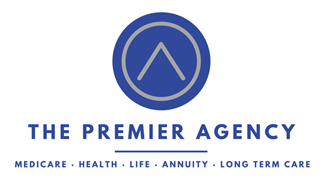Health insurance agents face numerous challenges in today’s competitive market. Are you struggling to meet sales targets or adapt to industry changes? This article explores common obstacles in health insurance sales and provides practical strategies for success. We’ll cover effective communication techniques, leveraging technology, and building trust with clients. By implementing these insights, you’ll be better equipped to navigate the complex health insurance market and improve your business model. Learn how to stay compliant with regulations while offering innovative solutions like telehealth in your insurance policies.
Key Takeaways
- Health insurance agents face challenges like market saturation, regulations, consumer mistrust, and technological changes
- Building trust and credibility through transparency, personalized solutions, and consistent follow-ups is crucial for success
- Effective communication skills, including active listening and simplifying complex concepts, are essential for engaging clients
- Staying current with insurance laws and participating in ongoing education helps agents navigate regulatory changes
- Leveraging technology, such as CRM tools and social media, can boost sales performance and improve client engagement
Understanding the Common Challenges in Health Insurance Sales

Health insurance agents face several challenges in today’s competitive market. These include navigating market saturation, complying with regulations, addressing consumer mistrust, managing complex products, and adapting to technological changes. Understanding these obstacles is crucial for agents to innovate and succeed in the evolving insurance landscape. By leveraging data and industry knowledge, agents can develop effective strategies to overcome these hurdles.
Identifying Market Saturation and Competition
Health insurance agents face significant challenges in a saturated market with intense competition. Insurance brokers must differentiate themselves through transparency and exceptional service to gain a lead over competitors. Regulatory compliance adds another layer of complexity, requiring agents to stay updated on evolving health insurance laws and policies. To succeed, agents need to develop unique value propositions and leverage their expertise to stand out in this crowded field.
Navigating Regulatory and Compliance Requirements
Health insurance agents must navigate complex regulatory requirements in the insurance industry. Insurers face strict compliance standards, including data protection laws to prevent data breaches and maintain client trust. Agents need to stay updated on evolving regulations, which often vary by state and organization. Balancing compliance with client needs requires agents to develop empathy and clear communication skills to explain complex policies effectively.
Addressing Consumer Mistrust and Misconceptions
Consumer mistrust and misconceptions pose significant challenges for health insurance agents. Many clients, especially millennials, demand transparency and clear value propositions from insurers. Agents must address these concerns by providing accurate information, explaining complex terms, and demonstrating the tangible benefits of health insurance policies. By focusing on building trust and delivering exceptional customer service, agents can overcome skepticism and establish long-lasting relationships with their clients.
Dealing With Complex Product Offerings
Health insurance agents face challenges when dealing with complex product offerings. The ecosystem of insurance products, including term insurance, often involves intricate information that can be difficult for clients to understand. Agents must navigate this complexity while explaining the cost and benefits of various policies. To address this challenge, agents need to simplify complex terms and provide clear, concise information to help clients make informed decisions:
Managing Technological Changes in the Industry
Health insurance agents face significant challenges in managing technological changes within the industry. Data analysis and customer relationship management systems have become essential tools for insurance professionals to effectively serve clients and manage employee benefits. Online advertising has transformed how agents reach potential customers, requiring new skills and strategies. Agents must adapt to these technological advancements to remain competitive and provide valuable services to their clients.
Developing Effective Strategies to Overcome Obstacles

Health insurance agents can overcome sales challenges by implementing effective strategies. These include building strong client relationships, enhancing product knowledge, utilizing data analytics, employing consultative selling techniques, and staying informed on industry trends. By focusing on customer experience, managing budgets, and leveraging APIs, agents can improve their sales performance and deliver better service to clients.
Building Strong Relationships With Clients
Health insurance agents have the opportunity to cultivate enduring connections with clients by placing emphasis on tailored interactions and gaining insight into their specific requirements. Sales professionals are encouraged to move past mere discussions of price and coverage, and instead employ content marketing strategies to enlighten clients about the intricate landscape of insurance. By supplying valuable information and offering guidance, agents can position themselves as trusted advisors, fostering enduring partnerships that are resilient in the face of market challenges.
Enhancing Knowledge of Insurance Products and Services
Professionals should always improve their understanding of insurance products and services to do well in finding potential customers and building their brand. Staying updated on new health policies, company offerings, and industry trends helps agents give useful advice to clients. Agents who keep learning position themselves as trusted advisors, making their brand stronger and improving their ability to handle complex client needs.
Utilizing Data Analytics to Target Potential Customers
Leverage data analytics to target potential customers more effectively. By analyzing market trends and customer behavior, agents can identify high-value prospects and tailor their approach. This data-driven strategy allows for more efficient use of resources and improves return on investment. Market leaders in the industry often incorporate artificial intelligence to enhance their targeting capabilities. Regular training and audits ensure that agents stay up-to-date with the latest analytical tools and techniques, maximizing their ability to connect with the right customers.
Implementing Consultative Selling Techniques
Improve sales and customer satisfaction by implementing consultative selling techniques. This approach focuses on understanding client needs through active listening and asking targeted questions. By positioning themselves as trusted advisors, agents can generate quality leads and build long-term relationships. Automation tools can streamline the process, allowing agents to focus on personalized interactions. Effective consultative selling requires agents to view themselves as a valuable resource for clients, providing tailored solutions that address specific concerns:
Staying Informed on Industry Trends and Updates
Stay informed on industry trends and updates to remain competitive in the rapidly evolving healthcare industry. Digital marketing strategies have become essential for reaching potential clients, while cloud computing solutions help manage expenses and improve financial stability. Agents who invest time in understanding these technological advancements can better navigate the changing landscape and provide more value to their clients.
Leveraging Technology to Boost Sales Performance

Leveragimg technology can boost sales performance and build trust in the market. By using customer relationship management tools, virtual platforms, social media marketing, and mobile applications, agents can enhance client loyalty and reduce risk. These technologies also support preventive healthcare initiatives, improving overall service delivery.
Using Customer Relationship Management Tools
Health insurance agents can enhance their sales performance by utilizing Customer Relationship Management (CRM) tools. These systems help agents manage client information, track policy details, and conduct risk assessments efficiently. CRM tools also enable agents to leverage internet-based communication channels, improving client engagement and retention. By integrating employment data and health care trends, agents can provide more personalized policy recommendations, ultimately boosting their sales success.
Adopting Virtual Platforms for Client Meetings
Adopting virtual platforms for client communications can boost sales performance. These digital tools enable agents to conduct consultations, presentations, and policy discussions remotely, expanding their reach and improving efficiency. Virtual platforms also help insurance companies comply with regulations while providing personalized service to clients interested in health and life insurance products. By leveraging these technologies, agents can increase revenue and enhance client satisfaction in the competitive insurance market.
Incorporating Social Media for Marketing Efforts
Leveraging social media platforms can enhance marketing efforts and drive digital transformation in the insurance sector. By investing in social media strategies, agents can improve efficiency in reaching potential clients and conducting market research. These platforms offer cost-effective ways to showcase insurance products, share valuable health-related content, and engage with customers. Agents can use social media analytics to measure the effectiveness of their campaigns and adjust their approach for better results:
Embracing Mobile Applications for Accessibility
Insurance sales can be boosted by embracing mobile applications for accessibility. These apps serve as a unique selling proposition, allowing agents to provide instant insurance coverage information and quotes, capturing clients’ attention on the go. By leveraging mobile technology, agents can improve their marketing efforts, ensuring their services are easily discoverable when potential clients search for insurance options on their smartphones.
Ensuring Data Security and Privacy
Health insurance agents must prioritize data security and privacy when leveraging technology to boost sales performance. As the Internet of Things expands and advertising becomes more targeted, agents need to develop skills in protecting sensitive client information. By implementing robust security measures and staying informed about privacy regulations, agents can enhance their productivity while maintaining client trust. This approach not only safeguards valuable data but also positions agents as responsible professionals in the digital age.
Building Trust and Credibility With Prospective Clients

Building trust and credibility is crucial for insurance agents to succeed in sales. This section explores strategies for providing transparent information, showcasing testimonials, offering personalized solutions, maintaining consistent follow-ups, and demonstrating professionalism. These approaches help agents improve visibility, streamline onboarding, and address client preferences regarding deductibles and coverage options.
Providing Transparent and Honest Information
Health insurance agents can gain a competitive edge by providing transparent and honest information to prospective clients. By clearly explaining policy details, coverage options, and potential costs, agents demonstrate their commitment to customer service and build trust. This approach helps agents manage client expectations effectively, potentially leading to increased income and improved salesforce performance. Transparent communication also enables agents to address concerns about competition, showcasing their value proposition and expertise in the health insurance market.
Showcasing Testimonials and Success Stories
Trust and credibility can be built by showcasing testimonials and success stories from satisfied clients. In the competitive health insurance industry, these real-life examples are powerful tools for customer engagement and demonstrate an agent’s expertise. Licensed insurance brokers who strategically integrate client testimonials into their marketing efforts can effectively highlight their ability to meet diverse insurance needs and overcome challenges, ultimately strengthening their brand reputation.
Offering Personalized Solutions to Meet Needs
Offering personalized solutions that meet their target market’s specific needs can enhance trust and credibility of the agent. By leveraging analytics, agents can gain insights into client preferences and tailor their value proposition accordingly. This approach allows brokers to recommend the most suitable insurance products, demonstrating their expertise and commitment to client satisfaction. Personalization not only enhances the client experience but also differentiates agents in a competitive market, potentially leading to increased sales and customer loyalty.
Following Up Consistently to Maintain Relationships
Health insurance agents can build trust and credibility by following up consistently with prospective clients. Under the Affordable Care Act, patients have more options for healthcare in the United States, making it crucial for agents to maintain regular contact. By keeping in touch, agents demonstrate their commitment to understanding client needs and providing ongoing support. This approach helps build a strong reputation and fosters long-term relationships, ultimately leading to increased sales and client retention.
Demonstrating Professionalism and Reliability
Demonstrate professionalism and reliability by consistently delivering accessible and timely information to clients. This approach enhances lead generation efforts and supports an effective marketing strategy. By maintaining a professional demeanor and responding promptly to client inquiries, agents can positively influence client behavior and build trust. Reliable agents who prioritize accessibility often see improved conversion rates and client satisfaction.
Enhancing Communication Skills for Better Engagement

Effective communication is vital for health insurance agents to engage clients successfully. This section explores key skills: active listening, simplifying complex concepts, addressing objections, presenting information clearly, and adapting communication styles. By mastering these techniques, agents can better understand client needs, explain policies effectively, and build stronger relationships.
Practicing Active Listening to Understand Concerns
Health insurance agents can enhance their communication skills by practicing active listening to understand client concerns. This technique involves giving full attention to the client, asking clarifying questions, and reflecting back on what was heard. By actively listening, agents can identify underlying issues, tailor their solutions, and build stronger relationships with clients. Effective active listening also helps agents navigate complex conversations and address potential objections more effectively:
Simplifying Complex Insurance Concepts
Improve client engagement by simplifying complex insurance concepts. They break down intricate policy details into easily understandable terms, using clear examples and analogies to illustrate key points. By avoiding industry jargon and focusing on the practical implications of various coverage options, agents help clients make informed decisions. This approach not only enhances communication but also builds trust and credibility, leading to stronger client relationships and increased sales success.
Addressing Objections Effectively
Address objections effectively by anticipating common concerns and preparing thoughtful responses. They listen carefully to client objections, acknowledge their validity, and provide clear, factual information to address these concerns. By focusing on the specific benefits that align with the client’s needs, agents can overcome objections and guide the conversation towards a positive outcome. This approach helps build trust and demonstrates the agent’s expertise in navigating complex insurance decisions.
Presenting Information Clearly and Confidently
Health insurance agents can enhance their communication skills by presenting information clearly and confidently. They use concise language, organize key points logically, and maintain eye contact to convey expertise. By practicing their delivery and staying up-to-date on industry knowledge, agents can effectively explain complex policies and answer questions with assurance. This approach helps build trust and credibility with clients, ultimately leading to more successful sales interactions.
Adapting Communication Styles to Different Audiences
Health insurance agents can enhance their communication skills by adapting their styles to different audiences. They tailor their language, tone, and level of detail based on the client’s age, background, and familiarity with insurance concepts. For example, agents may use more technical terms with seasoned business owners while opting for simpler explanations with first-time insurance buyers. This flexible approach helps agents connect more effectively with diverse clients, fostering better understanding and trust across various demographic groups.
Adapting to Regulatory Changes and Compliance Standards

Health insurance agents must adapt to regulatory changes and compliance standards to succeed in sales. This section explores strategies for staying current with insurance laws, participating in ongoing education, implementing compliance protocols, collaborating with legal teams, and educating clients on policy updates. These approaches help agents navigate the complex regulatory landscape while providing valuable service to clients.
Keeping Up-to-Date With Insurance Laws and Regulations
Health insurance agents must stay current with insurance laws and regulations to navigate the complex regulatory landscape effectively. They regularly review updates from state insurance departments, industry associations, and legal resources to ensure compliance. Agents also attend seminars, webinars, and training sessions to learn about new regulations and their impact on insurance products and sales practices. By staying informed, agents can provide accurate information to clients and avoid potential legal issues:
- Monitor official regulatory websites
- Subscribe to industry newsletters
- Participate in continuing education courses
- Consult with legal experts when necessary
- Implement changes promptly in sales processes
Participating in Continuous Education and Training
Stay ahead of regulatory changes by participating in continuous education and training programs. These programs offer agents the opportunity to learn about new laws, compliance requirements, and industry best practices. By regularly attending workshops, webinars, and certification courses, agents can maintain their expertise and provide up-to-date advice to clients. This commitment to ongoing learning not only ensures compliance but also enhances an agent’s credibility and effectiveness in the field.
Implementing Compliance Protocols in Sales Processes
Implement compliance protocols in their sales processes to ensure adherence to regulatory standards. They create checklists and documentation systems to track compliance requirements throughout the sales cycle. Agents also use software tools to automate compliance checks and maintain accurate records of client interactions. By integrating these protocols into their daily operations, agents minimize the risk of non-compliance and build trust with clients.
Collaborating With Legal and Compliance Teams
Health insurance agents collaborate with legal and compliance teams to navigate complex regulatory landscapes. These partnerships ensure agents stay informed about the latest legal requirements and industry standards. By working closely with legal experts, agents can develop compliant sales processes, review marketing materials, and address potential regulatory issues proactively. This collaboration helps agents mitigate risks and maintain ethical business practices in the ever-changing health insurance market.
- Consult legal teams for regulatory interpretations
- Review sales materials for compliance
- Develop compliant sales processes
- Address potential regulatory issues promptly
- Stay updated on industry standards
Educating Clients on Policy Updates and Implications
Health insurance agents play a crucial role in educating clients about policy updates and their implications. They explain new regulations, coverage changes, and potential impacts on premiums or benefits in clear, simple terms. By proactively informing clients about these updates, agents help them make informed decisions and maintain appropriate coverage. This approach builds trust and positions the agent as a valuable resource in navigating the complex health insurance landscape.
Conclusion
Health insurance agents face numerous challenges in today’s competitive market, from navigating complex regulations to addressing consumer mistrust and adapting to technological changes. By implementing effective strategies such as building strong client relationships, enhancing product knowledge, and leveraging data analytics, agents can overcome these obstacles and improve their sales performance. Embracing technology, building trust with clients, and continuously adapting to regulatory changes are crucial for success in this dynamic industry. Ultimately, agents who prioritize clear communication, stay informed on industry trends, and provide personalized solutions will be best positioned to thrive in the evolving health insurance landscape.


Recent Comments